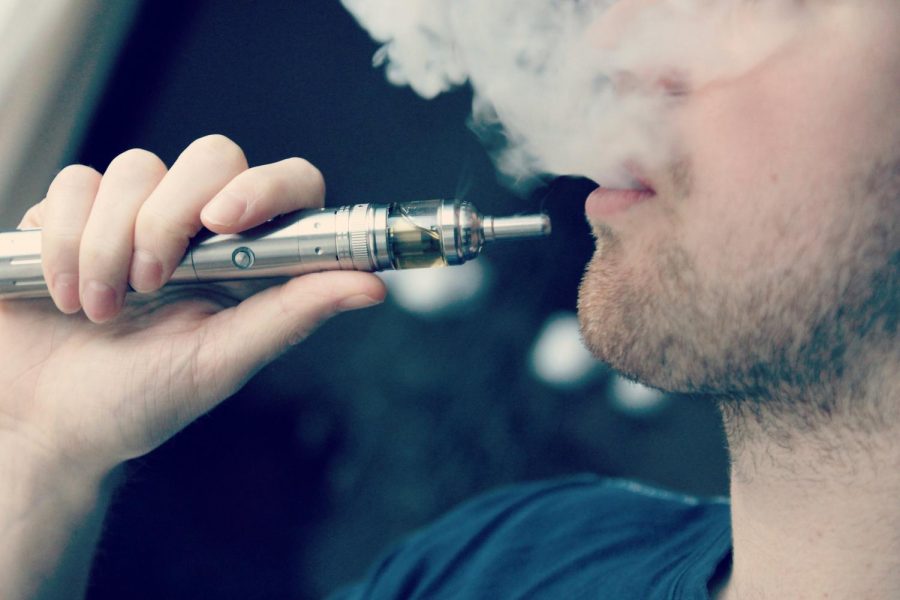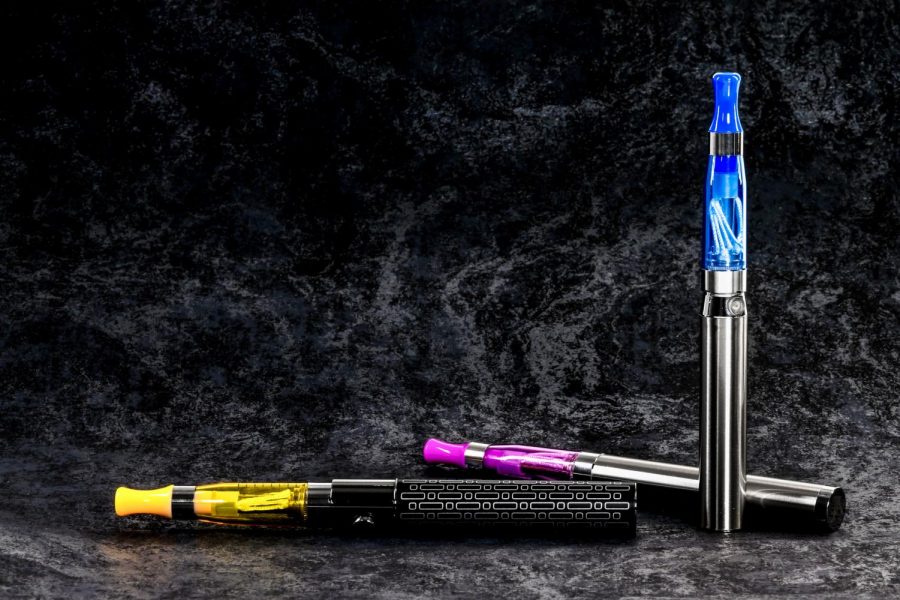When I was a freshman in high school, I was only vaguely aware of vaping. I thought it was something smokers used to transition away from cigarettes. By the time I was a senior, I had to push and shove my way to a urinal every time I had to pee between classes. The bathroom was packed with students, upper and underclassmen alike, all contributing to a massive, artificial fruit-scented cloud of steam.
My generation has fallen victim to nicotine addiction. With a 2018 CDC study revealing one out of every five high schoolers have vaped in the past 30 days, vaping is a youth health epidemic. Many states have banned fruity or sweet flavors that are thought to appeal to children and the Trump Administration is discussing banning them nationwide. On Tuesday, Massachusetts Governor Charlie Baker declared a state-wide public health emergency and enacted a four-month ban on all vaping products effective immediately. This action prohibits all vaping paraphernalia, flavored or unflavored, THC or nicotine based.
The main reason for these bans in Massachusetts and across the country are recent reports of illness. The Center for Disease Control has reported at least 805 cases of lung injury and 12 deaths thought to be associated with vaping. Two-thirds of these cases were of individuals 18-34 years old, and 16 percent were under 18. Numbers are continuing to rise as new cases are reported and older cases are being associated with the CDC’s case definition. The symptoms of labored breathing and chest pains have had quick onsets, have been compared to bacterial or viral pneumoniaand have occurred largely in people who vape but were otherwise healthy. Some have been able to return home, while others’ conditions proved fatal. Whether or not there is permanent damage to the lungs remains to be seen.
That is the worst part of the problem: we still do not know much about vaping and its long-term or even short-term health risks. Cigarettes were not included with the ban because their negative health risks (including respiratory illnesses, cardiovascular diseases and cancers) are well-known and well-publicized. Electronic cigarettes, on the other hand, have always been billed as a safer alternative to their supposedly antiquated counterparts, part of a pseudoscientific advertising campaign that is now under much criticism. This month the FDA issued a warning to the makers of Juul, the most popular brand of vape, expressing their concerns about the company’s marketing of the product as safe, especially to children. Meanwhile, the CDC is still investigating the dangers of vaping and what ingredients may be causing the illnesses, recommending that people simply“consider refraining from using e-cigarette or vaping products.”
These new reports are scary, but is immediately banning all vape products the answer?
Nicotine addiction certainly will not go away overnight, and many individuals will look for other ways to get their fix. Former smokers who switched to electronic cigarettes may be tempted to reach back for their Marlboros or Newports. While this may also be a concern for youth who vape but have never smoked, a bigger threat is the prevalence of counterfeit products, especially those containing THC. Empty cartridges can be purchased from Chinese manufacturers and filled with THC oil. As THC oil is very expensive, vitamin E acetate is often added to make the cartridges appear thicker. This additive is thought to be harmful when inhaled, although little is truly known about its effects on the lungs. These counterfeit products may appear similar to well-known brands and could easily be sold off to youth searching for a replacement.
The ban also puts small businesses at risk. Entire shops dedicated to vaping products risk losing their business, and some plan to take legal action against the Commonwealth.
Recognizing these issues, the Baker Administration did not make the decision hastily, issuing the ban after consultation with medical practitioners. Baker also had the foresight to establish a standing order allowing anyone to purchase nicotine replacement products, such as gum or patches, without a prescription, using their health insurance to pay for it. The state smokers’ hotline will also expand its ability to offer support and services to those trying to quit.
Until the details of these lung illnesses can be better determined, it is important for people to keep away from electronic cigarettes. While increasing access to addiction counseling and nicotine alternatives is a good idea, taking vaping products away from the people by force will not work out well. Just as illegalizing the sale of alcohol did not end its consumption, this complete prohibition can run the risk of boosting traditional cigarettes back into popularity, or worse, cause many to turn to even more harmful and completely unregulated counterfeit cartridges. Banning flavored juices may be able to reduce some of the appeal, but those who still wish to vape will find a way to do so, legally or otherwise. The best way to fight this epidemic is with information. As more of vaping’s threats come to light, more needs to be done to make the public aware of them and to reverse their image as a safer alternative, especially among middle and high school students. Then, citizens can make their own informed decisions about their health.
David Geddes is a Collegian contributor and can be reached at [email protected].



















